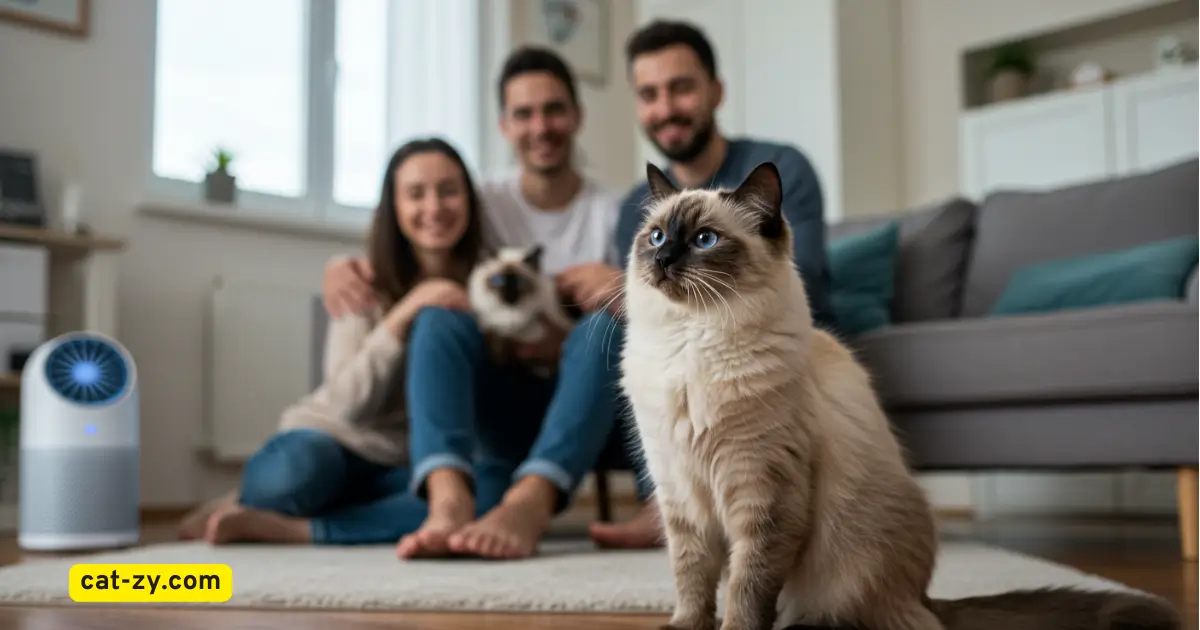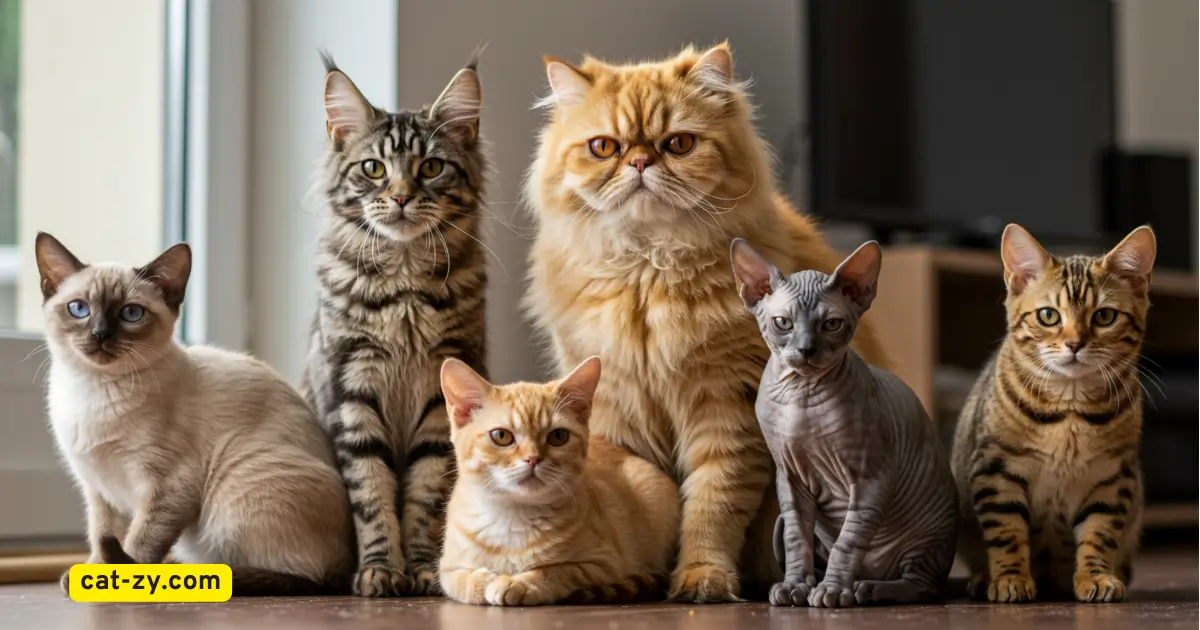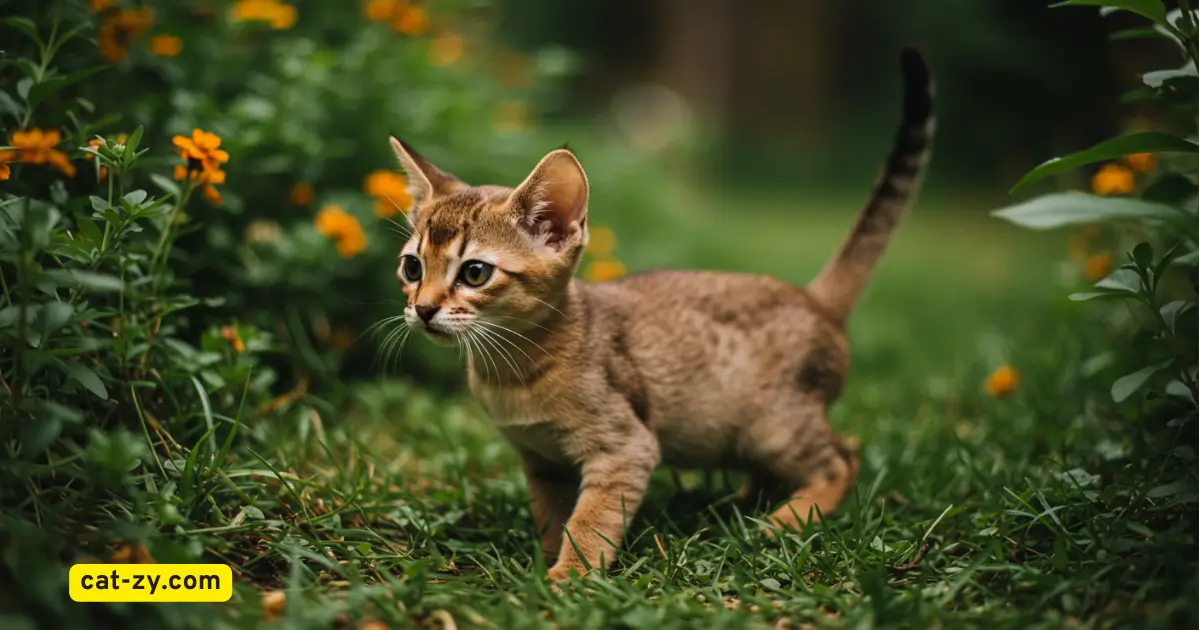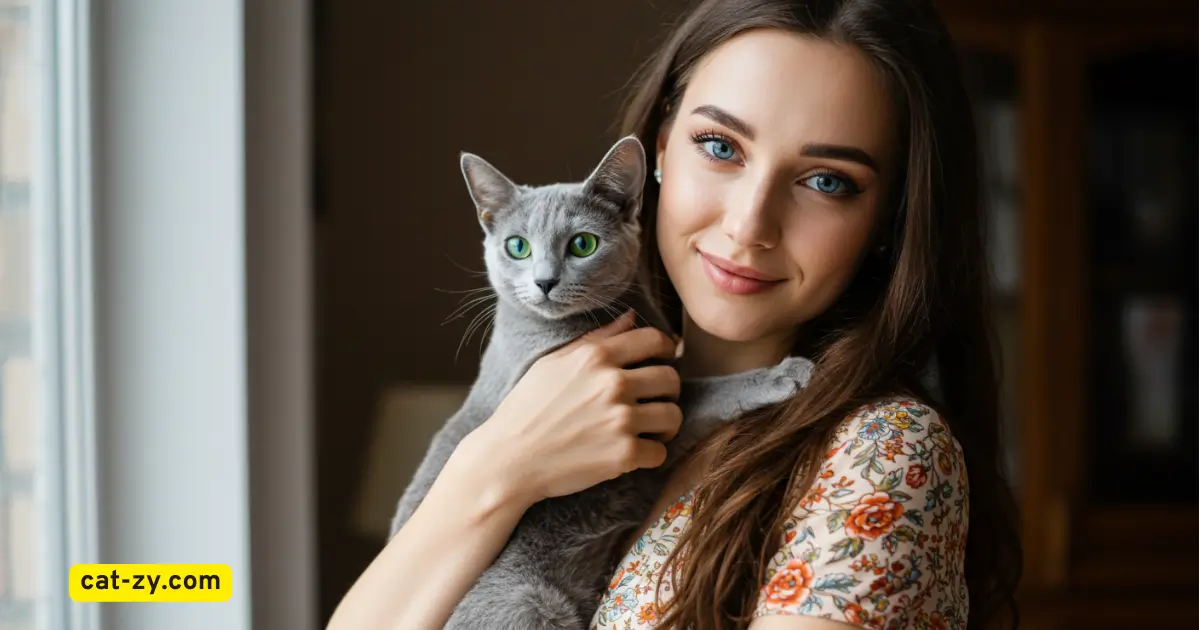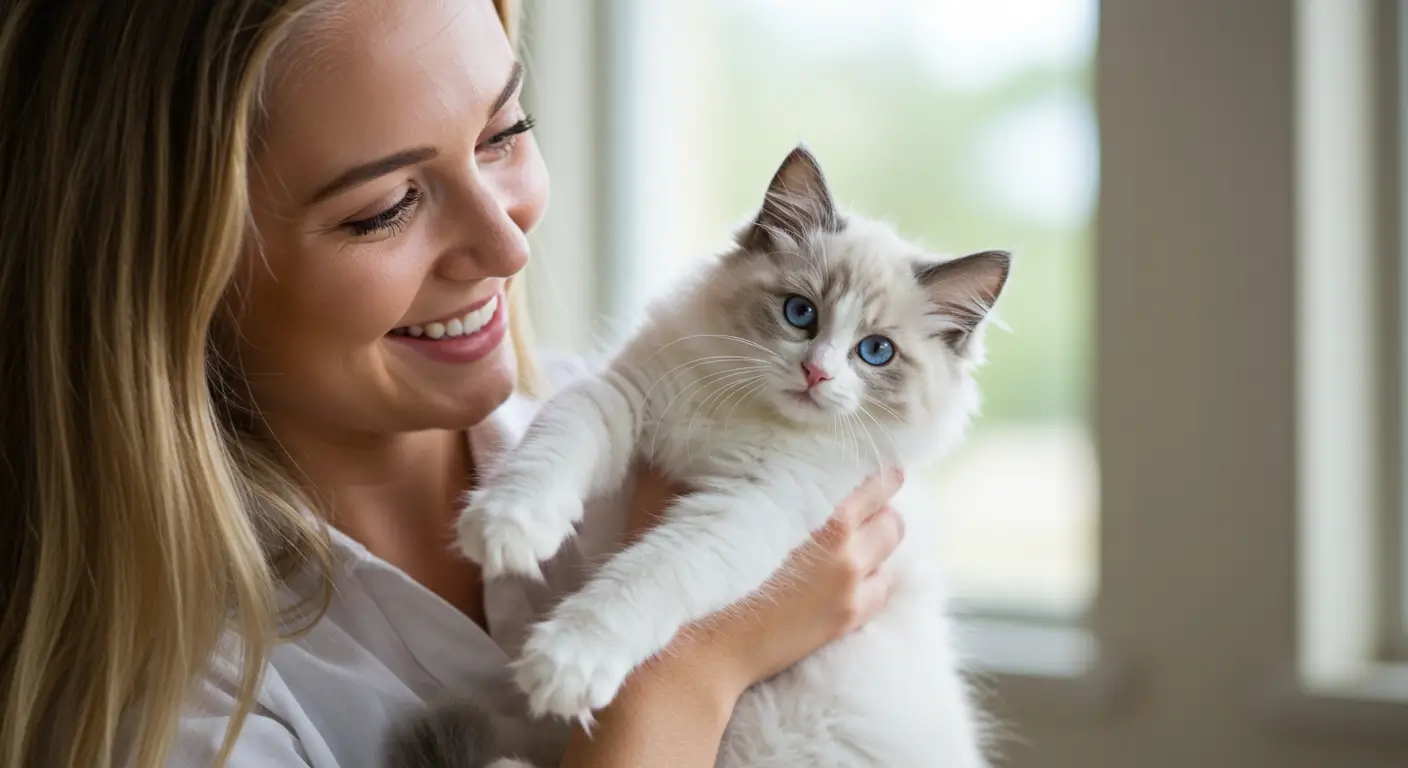Top 5 Exotic House Cats You Can Own Today
Imagine your living room turning into a jungle every night. But instead of wild animals, it’s filled with a cat that looks like a snow leopard or a caracal. For those who want more than a regular tabby, exotic house cats are now a reality. They mix the charm of pets with the stunning looks of wild animals.
In the U.S., more people are falling in love with exotic domestic cats. From the Lykoi with its tufted ears to the Serengeti with its rosette patterns. But what makes a cat exotic and safe to keep as a pet? This guide will clear up the confusion. Whether you dream of a cat that looks like it’s from the savanna or forest, these breeds show you can have something amazing without a zoo membership.
Table of Contents
Understanding Exotic House Cats: More Than Just Unusual Looks
Exploring domesticated exotic felines reveals more than their looks. They have striking traits like spotted coats and a wild ancestry. Yet, they are well-suited for home life. What makes a cat “exotic”? It’s often about hybrids or domestic cats with wild exotic cat species ancestry.
Think of breeds like the Savannah, with a serval mix, or the Bengal, with Asian leopard cat roots.
What Qualifies as an Exotic House Cats?
Genetics and ancestry are key. A domesticated exotic feline might have a wild ancestor several generations back. For example, a 4th-generation Savannah. Cats with unique patterns, like the Ocicat’s spots, also qualify.
Registration by bodies like TICA ensures breeds meet standards for temperament and health.
The Appeal of Unique Feline Companions
Choosing to own exotic cats means embracing unique personalities. Many hybrids are curious and energetic, making interactions lively. Their rarity makes your home a conversation starter.
However, their behaviors, like high climbing or vocalizations, require enriching environments.
Differences Between Domestic Exotics and Wild Species
Not all “exotic” cats are legal or safe. Exotic cat species like tigers or cougars are illegal to own. Hybrid breeds, like F1 Savannahs, may have stricter regulations than F5 generations.
Ethical owning exotic cats means choosing fully domesticated ones. This ensures their welfare matches your lifestyle and local laws. Conservation efforts also rely on distinguishing pets from endangered wild species.
Top 5 Exotic House Cats Breeds to Own in 2025
Choosing the best exotic house cat breeds means finding cats that look great and have good personalities. These five breeds are popular exotic house cats that look wild but are easy to live with. Each has special traits for different lifestyles.
Savannah cats resemble house cats but have features similar to a cheetah.. They have tall frames, golden coats, and bold spots. They love to play and go outside, so they need lots of space to climb and explore.
The Singapura is the world’s smallest cat with a unique look. They weigh 4–8 pounds and are full of energy. Their big eyes and sleek body make them a standout in small spaces.
Bengal cats are known for their leopard-like spots and friendly nature. They require plenty of toys and areas to explore and climb. But they are also very loving and make great family pets.
The Serengeti cat is a new favorite. They look like big cats but are calm. They need lots of space or a big indoor area to roam.
The Egyptian Mau is fast and beautiful. They have unique spots and are very vocal. They are loyal and love to play, making them great companions.
Essential Care Guide for Your Exotic House Cats
Caring for exotic house cats is special. They need exotic cat care tips to live well at home. Their diet, activity, and cleanliness are different from regular cats.
Specialized Diet Requirements for Exotic Cat Breeds
They need a well-rounded diet. Exotic cats often do better with higher protein content than standard cat food. Consider exploring raw or premium meal options. Some may benefit from added nutrients like omega-3.
Always make sure they have fresh water. And don’t overfeed them.
Exercise and Enrichment: Keeping Wild Instincts Satisfied
Exotic house cats still have wild instincts, so they need daily play sessions with feather wands or puzzle feeders. This helps them burn energy.
Provide climbing trees or window perches. It lets them climb and stay active. Also, keep them mentally stimulated to avoid boredom.
Health Considerations Unique to Exotic House Cats
Regular vet visits are key. Schedule check-ups every six months, especially for breeds with genetic issues. Make sure they get the right vaccinations and parasite prevention.
Watch their teeth and joints as they get older. This is important for their health.
Grooming Tips for Spotted Cats and Other Exotic Varieties
Spotted cats, like Bengals or Savannahs, need regular brushing. Use a soft brush once a week. Also, trim their nails carefully.
Bathe them only when necessary. Over-bathing can harm their natural oils. Check their coats for mats or skin problems during grooming.
Legal Considerations Before Bringing Exotic House Cats
Before you decide to own exotic cats, it’s crucial to check the laws. The U.S. Department of Agriculture has rules for moving certain exotic cat species across states. You need permits for cats like Savannahs or Bengal hybrids. Also, owning big cats like tigers or lions is banned without a special license.
State laws differ a lot. For instance, California doesn’t let people keep leopards as pets. New York requires a permit for servals. To know what’s allowed in your state, visit your wildlife agency’s website. Some regions might not allow hybrid cats at all.
Getting a license often means regular checks and showing you have a safe place for your cat. Insurance companies might not cover exotic pets, so check with them first. Your homeowners’ association or landlord could also have rules against exotic pets, so make sure to read your agreement.
Make sure you have papers that prove your cat is a domestic hybrid, not a wild animal. In places like Florida, you must microchip your exotic cat. Keep up with local laws to avoid fines or losing your pet.
Where to Find Reputable Exotic House Cats Breeders
Finding the right breeder for your exotic cat is all about research. Good breeders care about animal welfare, are open, and follow ethical rules. Here’s how to pick the best for your pet and yourself.
Questions to Ask Before Purchasing an Exotic Cat
First, ask about health checks like genetic tests and OFA hip checks. Find out how kittens are socialized and ask for references. Reputable sellers will talk about the special needs of breeds like Savannahs or Peterbalds. Stay away from those who don’t discuss spay/neuter contracts or hide pedigree info.
Average Costs for Popular Exotic House Cat Breeds
Prices vary a lot. Bengals cost $1,200–$3,000, while Savannahs can be $12,000+. These prices usually include shots, microchipping, and health promises. Watch out for prices under $500—it might be a red flag. Make sure the cost includes all the necessary documents for your breed.
Adoption vs. Purchase: Ethical Considerations
Adopting from places like Big Cat Rescue or the International Society for Exotic Cat Welfare gives cats a second chance. Buying from breeders supports ethical breeding, but choose those with TICA or CFA registration. Think carefully about what’s best for your lifestyle and the cat’s needs.
Conclusion: Is an Exotic House Cats Right for Your Home?
Owning exotic house cats is a big decision. These cats are beautiful and interesting, but they need special care. Think if your home and life can meet their needs.
Do you have enough space for them to climb or play outside safely? Can you handle their special diets and regular vet visits? Cats like Savannahs or Peterbalds live long, often over 15 years. Their food costs can add up.
These cats need patience. They might chase small pets or children if not watched. Also, check local laws about owning them. Some places have rules or bans.
Buying a purebred can cost over $2,000. But, you can also adopt from breed-specific rescues. If you’re ready to invest time and money, an exotic cat might be a great choice. But, it’s a long-term commitment.
Before you decide, visit breeders and talk to owners. Look at forums too. Exotic cats need a loving home where they can thrive.
FAQ
What qualifies as an exotic house cat?
An exotic house cat is a breed with special traits. They look different from regular cats. But, they are still domesticated and legal to own. The Bengal, Savannah, and Ocicat are examples of these cats. They have wild looks but are loving companions.
Is the world’s smallest cat an exotic breed?
Yes, the Singapura is the world’s smallest cat and is exotic. It’s small and playful. Its unique look and behavior make it special to cat lovers.
What are some popular exotic house cat breeds?
Popular breeds include the Bengal, Savannah, Sphynx, and Abyssinian. Each has unique features. For example, Bengals have spotted coats like leopards. Sphynx cats are hairless. These traits make them popular pets.
How do I care for an exotic house cat?
Caring for these cats means meeting their special needs. They need a high-protein diet and lots of exercise. Their coats also need regular grooming. Make sure they get vet care from experts in exotic cats.
Are there legal restrictions on owning exotic house cats?
Yes, laws about owning exotic cats vary. It’s important to check your local laws. You might need permits or face breed restrictions.
Should I adopt or buy an exotic house cats?
The choice between adopting or buying depends on you. Adopting can save a life and is cheaper. Buying from a reputable breeder can give you health and genetic information. Think about what’s best for you and your future pet.



